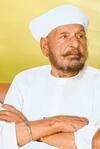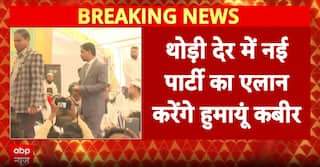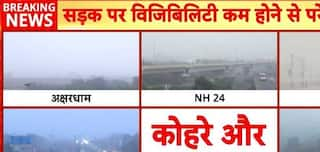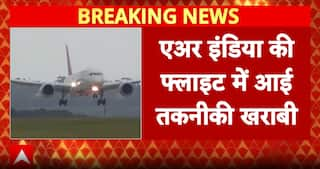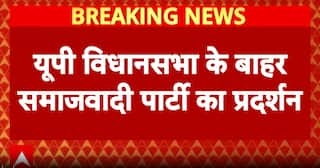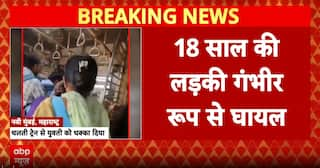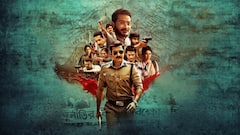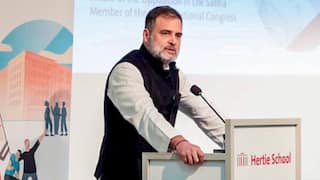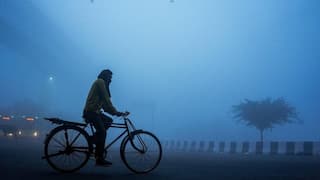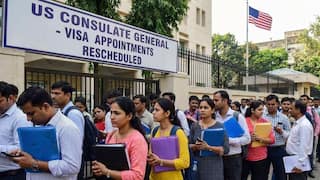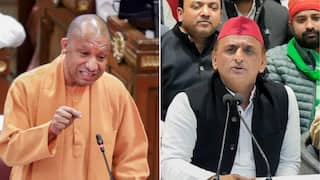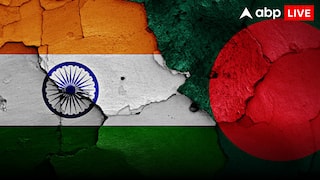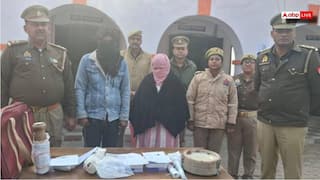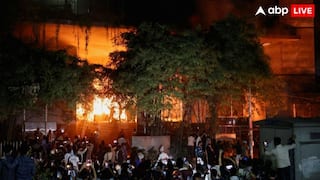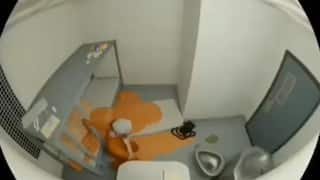Book Excerpt: Pakistan To Daltonganj, 1984 Riots, And Vajpayee's Tears — A Sikh Leader's Political Memoir
In his autobiography, Ek Sikh Neta Ki Dastaan, former MP Inder Singh Namdhari has chronicled his journey through the carnage of India's bloody Partition, and its legacy of hate.

My story begins from the small village of Naushera Khojian, situated on the banks of the Chenab, in Gujrat district of Pakistan’s Punjab province. My father Yodh Singh was his parents’ only child. He went on to father nine children, of whom eight were sons. I was sixth among the brothers and seventh among nine siblings.
My parents did not remember the date of my birth, but they never forgot the eventful, stormy monsoon night I came into this world. The ‘Rain God’ was so pleased that he roared and poured the whole night. Or so they believed. My simple, religious mother, Draupadi Devi, could only think of one name for her sixth son — Indra.
My relationship with water was not just nominal. It was water that gave me my first jeevandan (boon of life) as a six-year-old.
My eldest brother Balwant was 20 years older than I. His first son Surinder was almost my age; naturally, we related less as uncle and nephew, more like playmates. One fateful day, his mother sent us both to the nearby well for a bath.
"You two reach the well. I’ll follow you with a bucket.”
I can’t quite recall if I was trying to see the water or gauge its depth. All I remember is falling into the well. Horrified, my nephew, who could not even speak clearly, rushed off to tell his mother and babbled in Punjabi, “Inder khu wich gham (Inder has fallen into the well).”
My sister-in-law lost no time in raising an alarm. In a small village like Naushera, the news spread like wildfire. Many villagers had seen venomous snakes in and around the well, so no one volunteered to dive in. As soon as he reached the spot, my father — a short, wiry man — got into a large bucket and had himself lowered into the well.
Unable to trace me, he yelled frantically: “The boy is nowhere to be found!”
Suddenly, his hands touched my two little feet, and he pulled me out with all his might. I gave out a loud shriek. The crowd burst out in cheers as my father brought me out of the well. My ordeal would have lasted for almost half an hour, but the water could not enter my lungs, as my head got stuck in the muck at the bottom. That harrowing experience made me a passionate believer in destiny at a very early age.
It was my first close encounter with death. It was not to be my last. Nature was to grant me many such jeevandans in the times to come.
In August 1947, the dark clouds of Partition were looming over India. My father, who ran a modest kirana shop at Khojian, was so content in his small world that he refused to heed the signs of an impending storm. But my two eldest brothers had set off for Uttar Pradesh and Bihar on the invitation of some relatives to look for a new home.
On August 14, Pakistan was born. A day later, India celebrated its independence from the British rule. Two days later, the line drawn by Radcliffe between the two nations created such a divide that rivers of blood began to flow on the streets. Overnight, millions of Hindus, Sikhs, and Muslims found themselves on the wrong side of the border.
It was only after all Sikh families had left our village that my father agreed to pack his bags. I was then a boy of seven. But those tragic scenes remain etched in my memory. The fury of monsoon rains. The flooded rivers. The deluge of wailing, weary refugees from both sides. The sea of suffering humanity.
Our village was near the Jammu border. By night fall, our small convoy of men, women, and camels carrying my two little brothers and household belongings, reached the village across the border and took shelter in a gurdwara.
But we arrived in the town of Jammu after a long, arduous trek through a treacherous terrain. While crossing the icy-cold water of the turbulent Tavi, I froze with fear, and my hand slipped out of my elder brother Mahinder’s. Its waters were flowing with the speed of a bullet. Before I could be swept away, several hands emerged to save me. It was my second lifeline in as many years.
After living in a refugee camp for two weeks, we were huddled like cattle into a goods train, and dispatched to Amritsar. Who could have known that the girl I would marry one day was living at a refugee camp near Amritsar’s Golden Temple at the same time. Malvinder and I had similar stories. Like me, she too had narrowly escaped a watery grave on her way to India.
But for her family, the short journey from Lahore to Amritsar became their lives’ longest. Most painful too. Her wounds had not healed even when we two refugees became man and wife.
***
A Sikh lawmaker’s baptism by fire
In the spring of 1980, the Jan Sangh was reincarnated as the Bharatiya Janata Party, with a blooming lotus as its poll symbol.
That summer, as Bihar went to polls, the small town of Daltonganj took a big leap of faith. A Hindu-dominated seat, with a large number of Muslims, and only a few hundred Sikh families, elected a Sikh as its MLA.
Such unprecedented was my victory in the religion and caste-ridden politics of Bihar that the BJP anointed a first-time MLA as the leader of its legislature party. This was a moderate BJP. With a moderate face. Atal Bihari Vajpayee.
I would have my baptism by fire.
Punjab was in political turmoil. The writ of dreaded militant Jarnail Singh Bhindranwale ran from the highest temporal body of the Sikhs — the Akal Takht. In that communally-charged atmosphere, Vajpayee held his programme in Amritsar, and invited me there. We travelled together on a train to Amritsar, where I gave a speech supporting India’s integrity.
That did not go down well with the Sikh radicals demanding a separate nation — Khalistan. My elder brother Sahinder, who lived in Delhi, received a threat call from an unknown group warning me of dire consequences for making such statements.
Nothing could have prepared us for what followed. In June 1984, Prime Minister Indira Gandhi sent the Army into the Golden Temple to flush out militants. Bhindranwale was killed. Three months later, on the morning of October 31, Indira was assassinated by her two Sikh bodyguards at her residence.
The killing of a country’s prime minister was a gruesome act. But keeping the country safe from retributive violence was the responsibility of the government of the day. History stands witness to the carnage that followed. Not only did the Congress fail the test, Indira’s son Rajiv Gandhi, who was hurriedly declared as the prime minister that same evening, fanned communal frenzy by his controversial remark — "When a big tree falls, the ground shakes."
It shook an entire nation.
Even before Indira’s body could be assigned to the flames, the national capital of Delhi was set ablaze. Bloodthirsty mobs butchered hundreds of Sikhs, looted their shops, and gutted their homes. Young women were raped.
The cities of Kanpur in Uttar Pradesh and Bokaro in Bihar also witnessed heartrending scenes. Sikh lives and property were also lost in Patna, Ranchi, and Dhanbad, but the state’s Congress government remained unmoved.
As a Sikh MLA of a Hindu-majority seat in a Congress-ruled state, I was put on trial.
On the night of the blood moon.
Sikh families were calling me desperately for help. A mob had attacked the house of a Sikh businessman, Raj Singh. Fired in self-defence, his bullets had killed two rioters. A band of sword-wielding men had attacked the Belvatika gurdwara and badly injured its head priest. The Namdhari gurdwara was also vandalised. When shops owned by Sikhs were being looted openly, I went out on the streets, without any police protection. My Hindu friends forced me to return home.
Even Sikh jawans who protect the country’s borders were not spared. A murderous mob pounced on them at the Garwah Road station, pulled them out of the train, and butchered them. My heart was torn asunder when the mutilated body of my relative Sukhdev Singh arrived from Bhawnathpur town near Garwah. His 85-year-old father Hakim Singh, too, was made to get off the train at a station and beaten up mercilessly. Hakim Singh was my elder brother Amar Singh’s father-in-law. He was such a lively person that he healed this wound too. Years later, he told me to perform his antim ardas (funeral prayer) in the gurdwara while he was still alive.
“After I die, you will pay homage to me. But I wish to hear you speak while I am still alive.”
I made all the arrangements, but my brother got wind of it, and the programme was cancelled unceremoniously.
The mindless violence continued for almost three days. It ended only after the Army and the CRPF held a flag march on the streets. Among the marching soldiers were also many Sikhs.
For Sikhs like me, the violence brought back painful memories of Partition.
The dubious intentions of the state government were also exposed when Palamau SP Arvind Sharma, who had risen to the occasion and saved Sikh lives, was transferred out as soon as the rioting ended.
When the Vidhan Sabha session began, I questioned then chief minister Chandrashekhar Singh: “Why was Arvind Verma transferred? Why did the rioting intensify upon your return from Delhi?” My statements unnerved the chief minister and he retorted angrily: “If you keep talking in this vein, you won’t be able to become an MLA in the next election.”
But the media failed to rise to the occasion.
I was pained to see that except for the Delhi edition of ‘Jansatta’, no other newspaper touched upon the story of a Sikh MLA’s agony. Local newspapers made no mention of it.
Chandrashekhar Singh’s warning was proven true. The Congress swept the November 1984 Lok Sabha elections riding the sympathy wave. The BJP made me contest Chatra seat. I lost. The anti-Sikh sentiments were still running high when Bihar went to polls in 1985. I lost the Daltonganj seat too.
***
Vajpayee’s tears, Advani’s counsel
The 1984 riots polarised the Hindu vote in the favour of Congress. Rajiv Gandhi was gaining popularity as a youth leader. Reduced to two seats in the Lok Sabha, the BJP was in the grips of an existential crisis.
In 1986, the saffron party’s baton passed from a moderate Vajpayee to a hardliner, Lal Krishna Advani. As the party embraced cutthroat Hindutva, a storm brewed within Vajpayee.
It made landfall in Kerala in 1987. During the BJP’s central working committee meeting at Cochin. That year, the Shiv Sena had won the byelection to Mumbai’s Vile Parle seat. Pramod Mahajan, the party’s prominent leader from Maharashtra, trumpeted it to propose an alliance with Bal Thackeray’s party. The issue was hotly debated for almost two hours. Most senior leaders were of the opinion that the alliance would help to consolidate the Hindu vote in BJP’s favour.
Vajpayee remained a mute spectator to the proceedings.
After the resolution was passed, he was requested to deliver the concluding speech. Vajpayee dismissed it summarily, with the shake of his hand. On Mahajan’s request, he took the mike, but broke down into tears.
“Leave me alone. I will not be able to walk with you any longer,” he said sobbing.
His patience had worn out.
“In Maharashtra, the Shiv Sena discriminates against the Dalits to the extent that the groom is not allowed to mount a mare. The Dalits cannot even sit on a cot before the upper castes. I broke my janeu (sacred thread) before stepping into politics to rise above the leanings of religion and caste.”
A deathly silence descended on the hall after Vajpayee’s emotional outburst. A few senior leaders leapt up to him to assuage his feelings. Before long, I found myself in Vajpayee’s shoes, undergoing a similar ideological turmoil.
The next chapter of my life was written in 1988. During a state-level meeting at Motihari, I was unanimously elected as the BJP president for Bihar.
The presidency proved to be the most challenging chapter of my turbulent political journey.
I had become an eyesore for BJP’s central leadership after the June 1989 meeting of its central working committee at Palampur. During the meeting, when the resolution to construct Ram Mandir in Ayodhya was being adopted, I had got up and pointed out to Advani that only last year a resolution had been passed at the party’s meeting in Shimla holding gurdwara politics responsible for the deep turmoil in Punjab.
My question was simple. “If gurdwara politics has cost Punjab dearly, would temple politics not vitiate the environment of India?”
Advani ji put forth an argument but I was not convinced.
During tea break, Advani ji called me near him, and said: “The issue of Ram Mandir is one of national prestige. It cannot be compared to the politics of gurdwaras in Punjab.”
Advani ji’s reasoning did not cut much ice with me. The signs were clear. The BJP was inching towards radical Hindutva. The proof was presented soon after. During the 1989 communal riots in Hazaribagh. The tensions between Hindus and Muslims killed 19 people during the Ramnavmi procession. As the president of Bihar BJP, I went to both Hindu and Muslim localities, and recited a verse from a popular Urdu poet to both the communities:
‘Tumahri gair pasandi ne, kitne ghar jalaye hai,
Jalega aur ghar kiska, tumhe ehsaas kya hoga
Bahao khoon sadako par, magar itna toh batlao
Watan jab khoon mangega, tumhare paas kya hoga’
(Your intolerance has burnt many homes,
Whose will it be next? How would you know?
Shed blood on the streets, only tell me this much,
When your country needs your blood, will you have some to offer?)
A day after my return, Bihar BJP MLA Yashodanand Singh gave a statement to the newspapers, saying: “It was not the president of Bihar BJP who toured Hazaribagh but the president of the Muslim League.” Would it have been fitting for the state president of a national party to console the people of a single community?
In the 1989 Lok Sabha elections, the BJP won from Hazaribagh. In next year’s state elections too, Hazaribagh went the BJP’s way.
In August 1989, it was Bhagalpur. The occasion, Muharram. The communal frenzy being whipped up in the name of the Ram Mandir forced me to doubt if the BJP was crossing the fine line between nationalism and communalism.
Ahead of November 1989 Lok Sabha elections, the BJP’s national convention was held in Mumbai. The Shiv Sena was now an ally. As Hindutva took centre stage, the space for minorities and moderates in the BJP was shrinking.
The presidents of each and every state, big and small, were called on stage to present a ground report. When it was my turn, the responsibility for presenting the report was entrusted to Kailashpati Mishra.
As such, minority leaders are a minority within the BJP. There could be no better testimony of its secularism than letting a leader from the minority community to represent the country’s second biggest and politically important state.
The gambit paid off. Riding the Ram Mandir wave, the BJP won 85 seats in the 1989 Lok Sabha elections for the first time. Hindutva was here to stay. And my days in the BJP were numbered.
In February 1990 Bihar elections, I was re-elected from Daltonganj with a thumping majority. On reaching Patna, party’s state in-charge Govindacharya telephoned me to reach Delhi. On reaching Delhi, he told me to resign from the position of the state president. I handed over my resignation there and then.
My next encounter was with politics of Muslim appeasement. As a minister in the cabinet of Bihar’s maverick chief minister, Lalu Prasad Yadav.
Inder Singh Namdhari is the first, and only, Sikh to become an MLA in Bihar and Jharkhand. He went on to become a member of Parliament from Chatra, which he won as an independent candidate. The excerpts from his book, published with permission from publisher Vani Prakashan, have been translated by his daughter Sukhdeep Kaur, who is a senior journalist and freelance writer based out of Punjab.
[Disclaimer: The opinions, beliefs, and views expressed by the various authors and forum participants on this website are personal and do not reflect the opinions, beliefs, and views of ABP Network Pvt. Ltd.]






